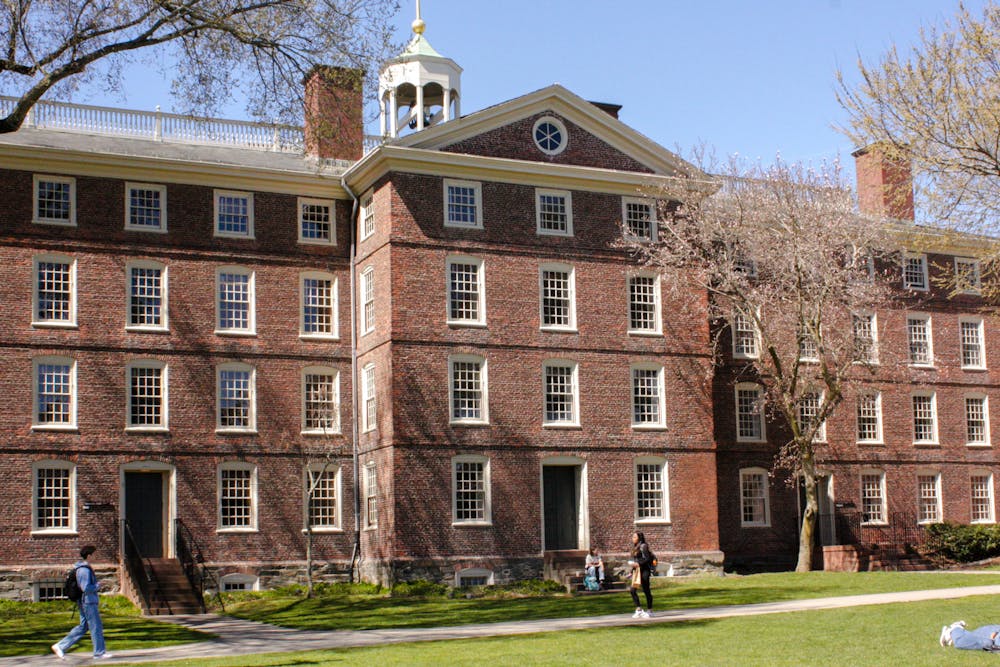“Diversity experiences and engaged classroom experiences are the two most influential experiences (for) college students,” said Mary Wright, executive director of the Sheridan Center for Teaching and Learning and associate provost for teaching and learning. But two upcoming Supreme Court decisions — Students for Fair Admissions v. Harvard and Students for Fair Admissions v. University of North Carolina — may impact how the University promotes these experiences, Wright said at Thursday’s Sheridan Center roundtable event titled “Teaching and the U.S. Supreme Court Decision on Affirmative Action.”
To open the discussion, Eileen Goldgeier ’85, vice president and general counsel at the University, presented an overview of the history of affirmative action. She began by highlighting Regents of the University of California v. Bakke, the landmark 1978 Court decision which she said established the legal precedent that “diversity in student body admissions is a compelling state interest.”
Additional cases, such as Grutter v. Bollinger and Gratz v. Bollinger, affirmed the importance of diversity on college campuses, Goldgeier said. “The only reason that we can consider race and national origin as one of the factors (in admissions) is the educational benefits that it brings to students in the university,” Goldgeier said.
In the face of the upcoming rulings, Logan Powell, associate provost for enrollment and dean of admission, reaffirmed the University’s commitment to diversity. Powell shared demographic data highlighting the increased number of students of color enrolled in the University in recent years, with 51% of students in the class of 2026 identifying as non-white.
“This growth has been consistent and it has been intentional,” he explained.
In the open discussion portion of the event, Powell touched on the topic of alternatives to race-conscious admissions, such as the consideration of zip codes, first-generation status and income status. “Every potential logical solution can get you somewhere but it doesn't get you as far as you might hope,” he said.
Powell spotlighted research that Harvard “presented at the district court level … that there are no race-neutral alternatives.” In the district case, Harvard contended that it would not be able to achieve “its educational objectives (of having a diverse student body) without considering race” even with an increased focus on socioeconomic status and the elimination of certain criteria such as test scores and legacy admissions.
Powell then moved to discussing data gathered from the University of California system. After the state passed Proposition 209 — a ballot initiative preventing the consideration of race in admissions processes — in 1996, schools saw a decline in the number of Black and Latinx applicants. “These two student groups no longer thought that they would be competitive for admission, even when statistically they would be,” he explained.
Andre Willis, professor of religious studies, and Emily Kalejs Qazilbash, professor of practice in education, both discussed how their roles as professors would be impacted if the Court were to strike down affirmative action.
“Diversity is the fundamental principle (that) organizes our capacity to think broadly,” Willis said.
“Our students benefit from being able to … learn from each other and … go out into the world having an understanding of different perspectives,” Qazlibash added.
Powell assured that the University will maintain its mission of understanding applicants “individually, holistically and contextually” in its admission processes.“That third part is the part that will really require additional emphasis on our part as we go forward,” he said.
The panel also discussed legacy admissions and athletic recruitment in relation to affirmative action. In a February panel sponsored by the University’s education department, Powell expressed that the admissions office might use legacy status as one way to continue admitting a diverse class.
“A third of our legacy students are students of color,” he added. “We admit every year twice as many first-generation students as we do legacy students.”
Powell also said that the University has “athletic teams (that) are themselves very diverse.
The University is “thinking about (every) possibly legally compliant intervention” while waiting for the Supreme Court to rule, which is expected in late June, he added.

Ryan Doherty was the managing editor of digital content and vice president of The Herald's 135th editorial board. He is a junior from Carmel, NY who is concentrating in chemistry and economics. He previously served as a university news and science & research editor, covering faculty and higher education.





